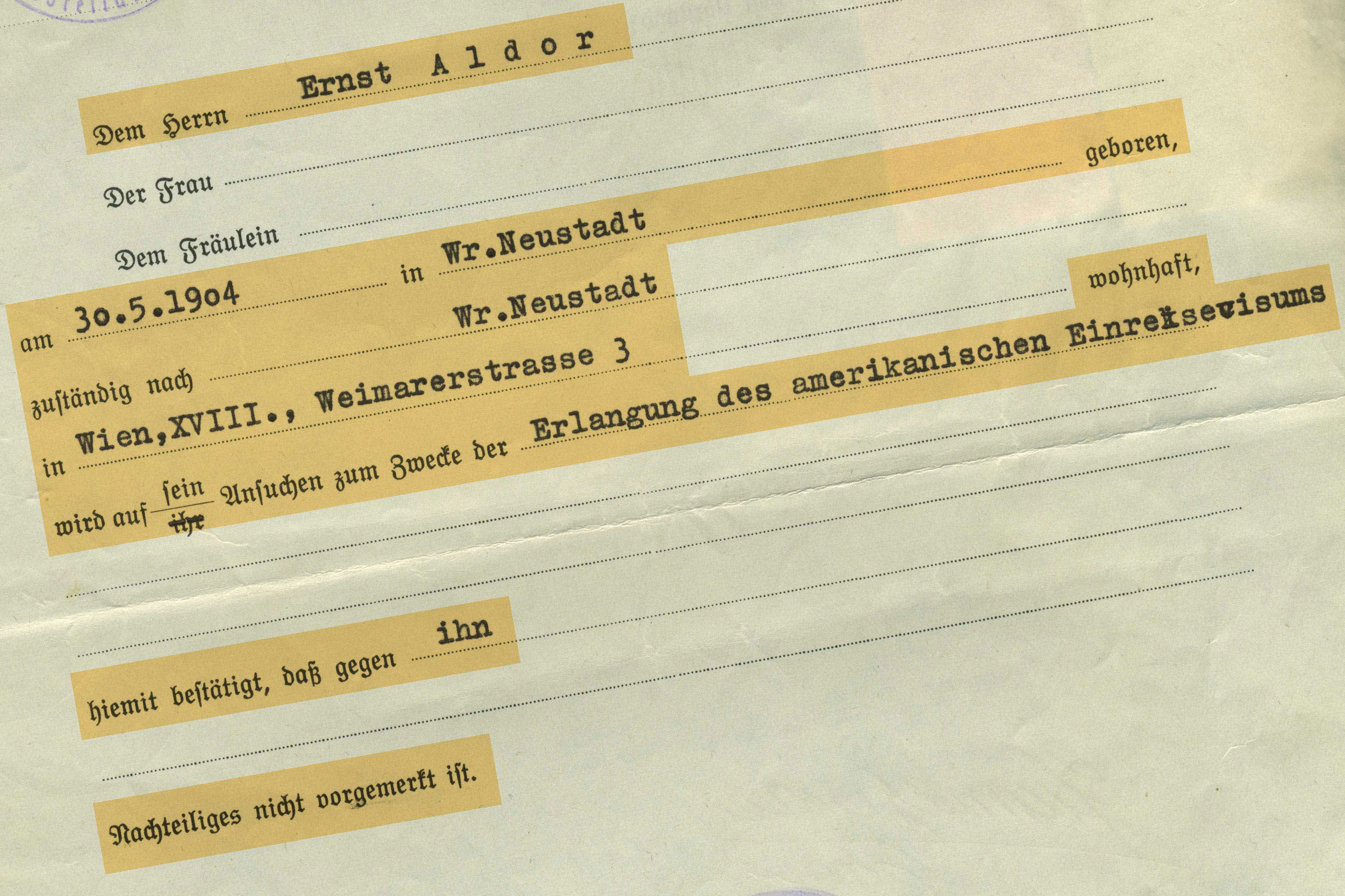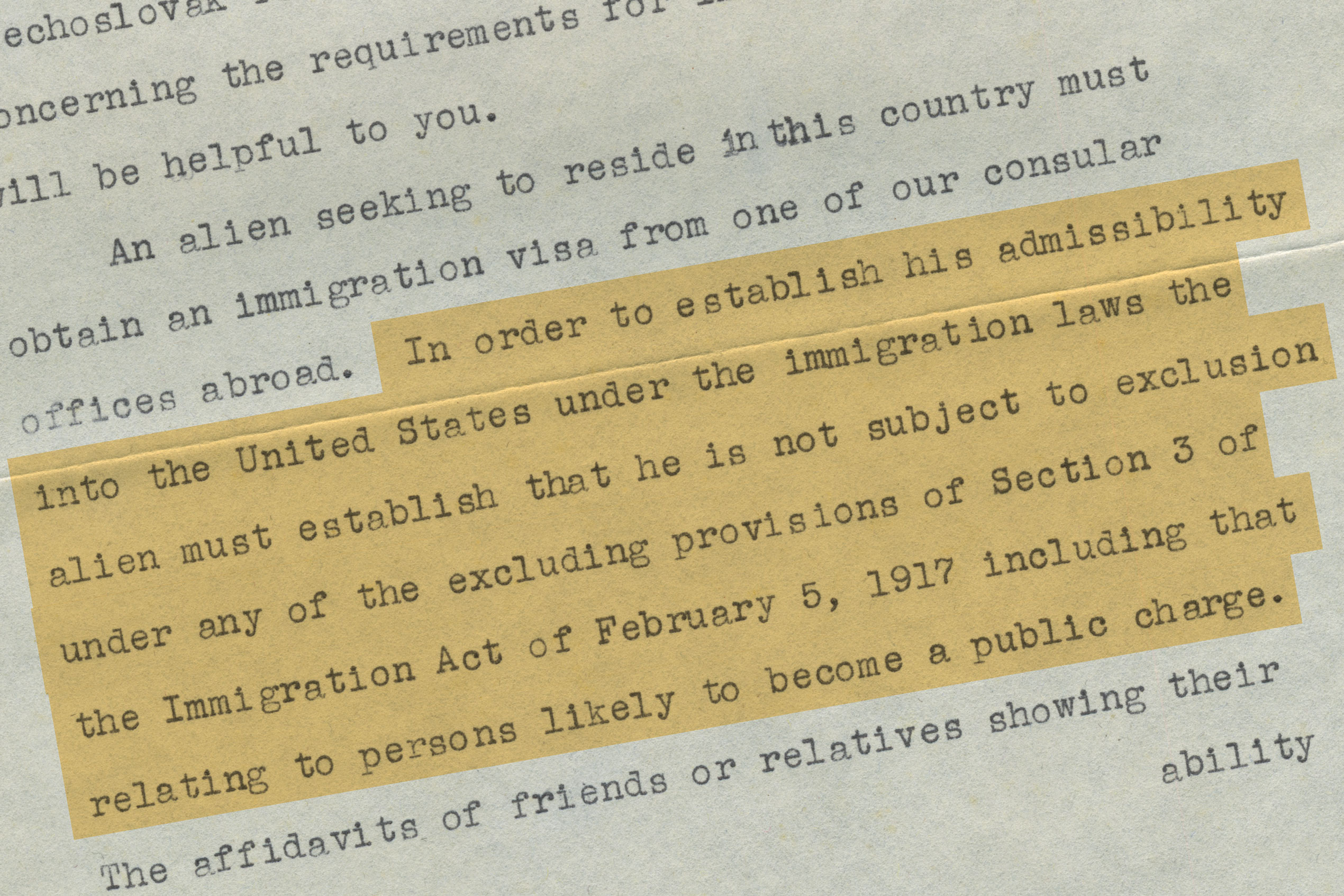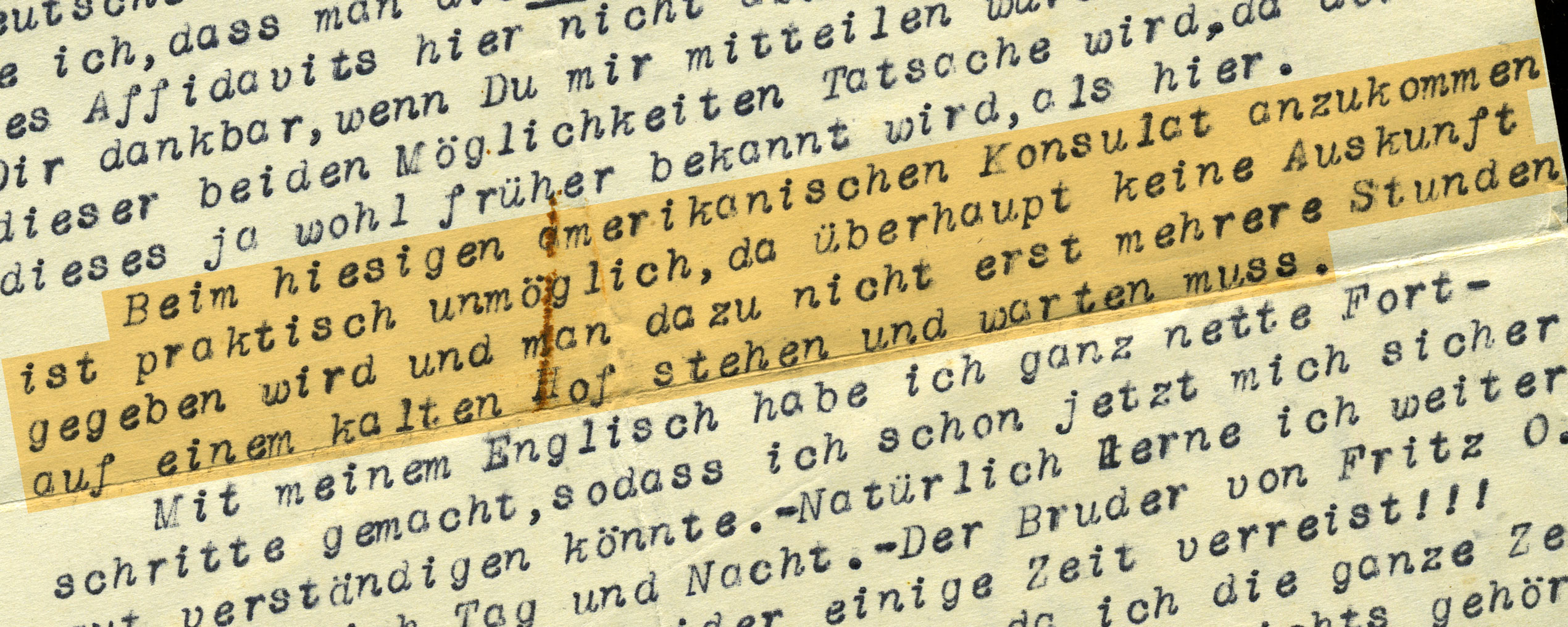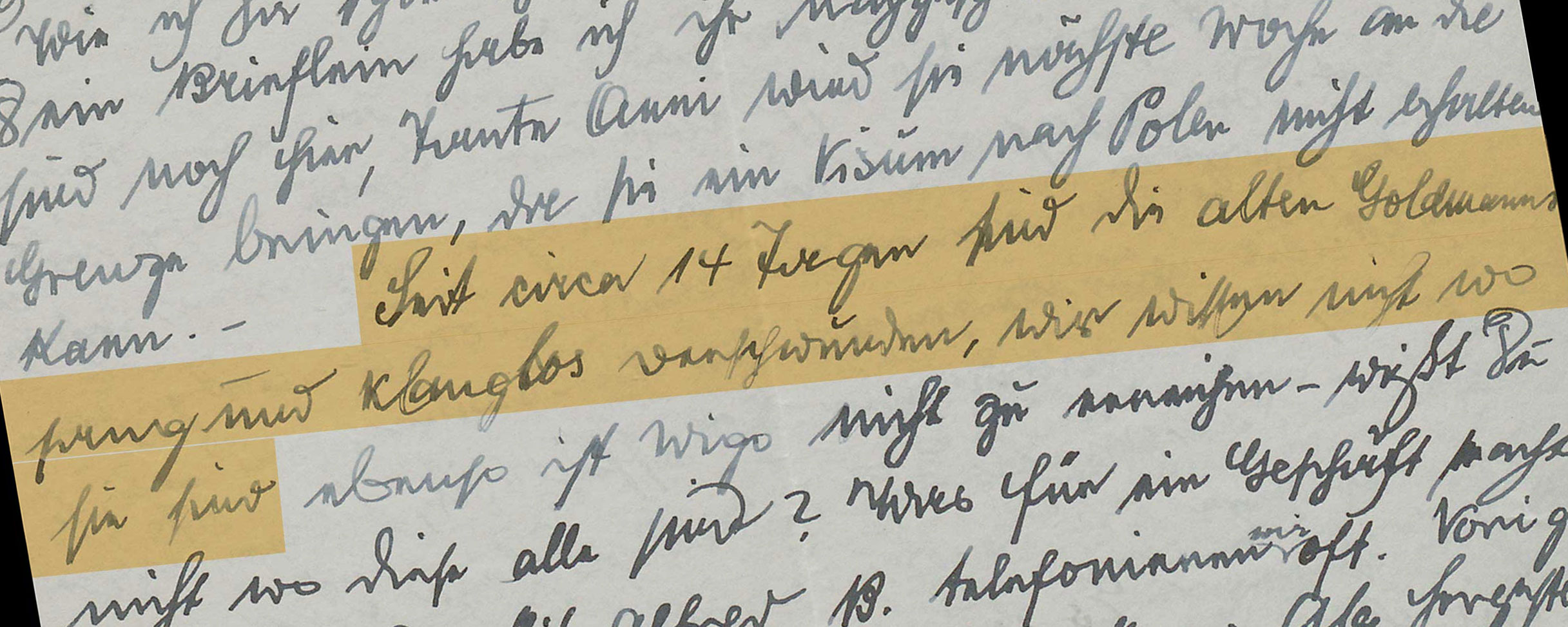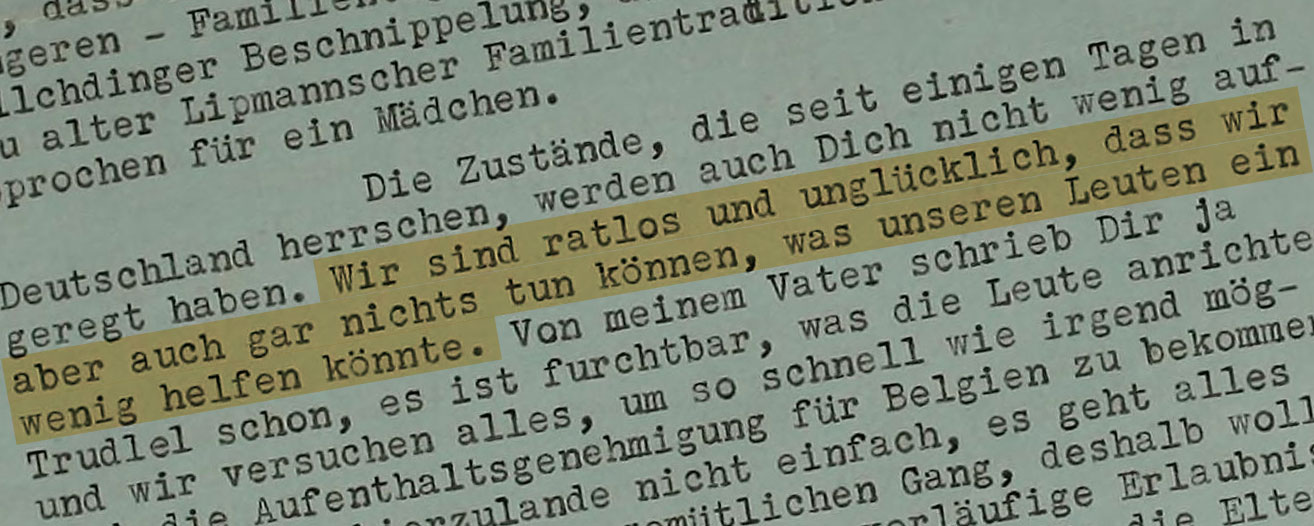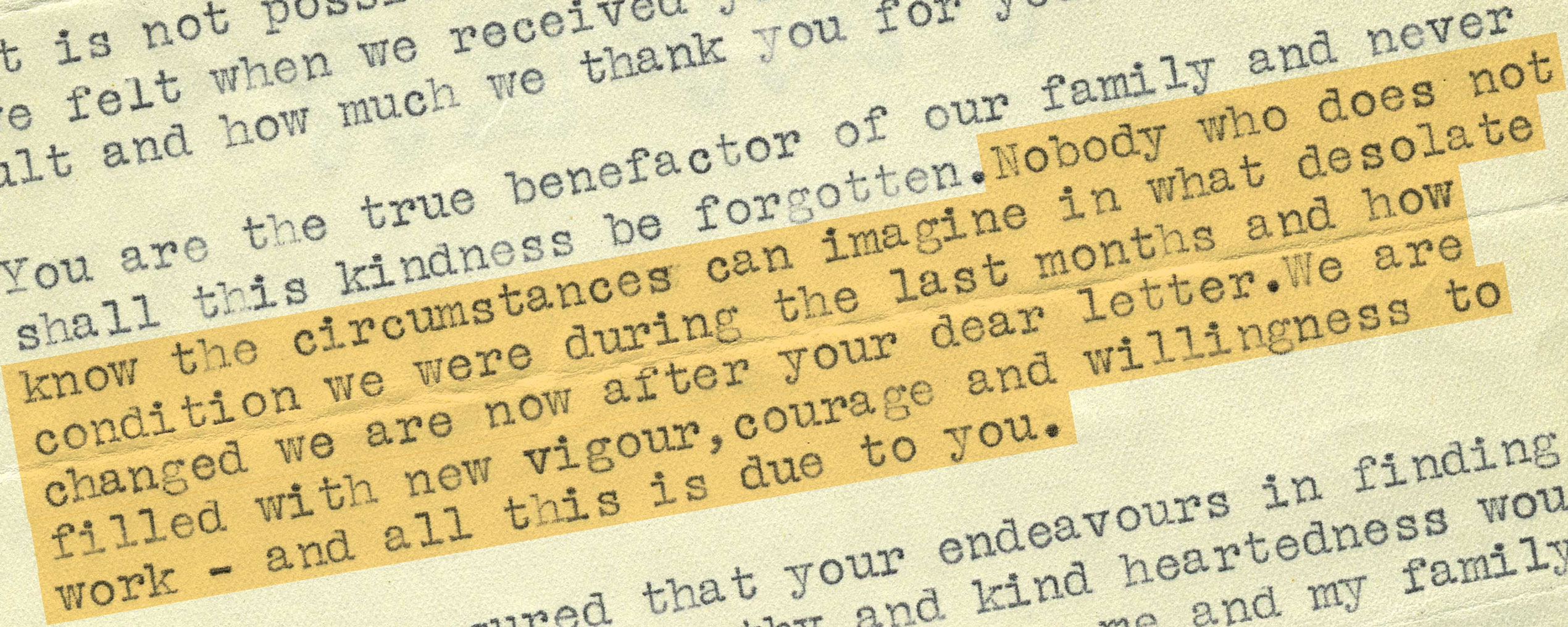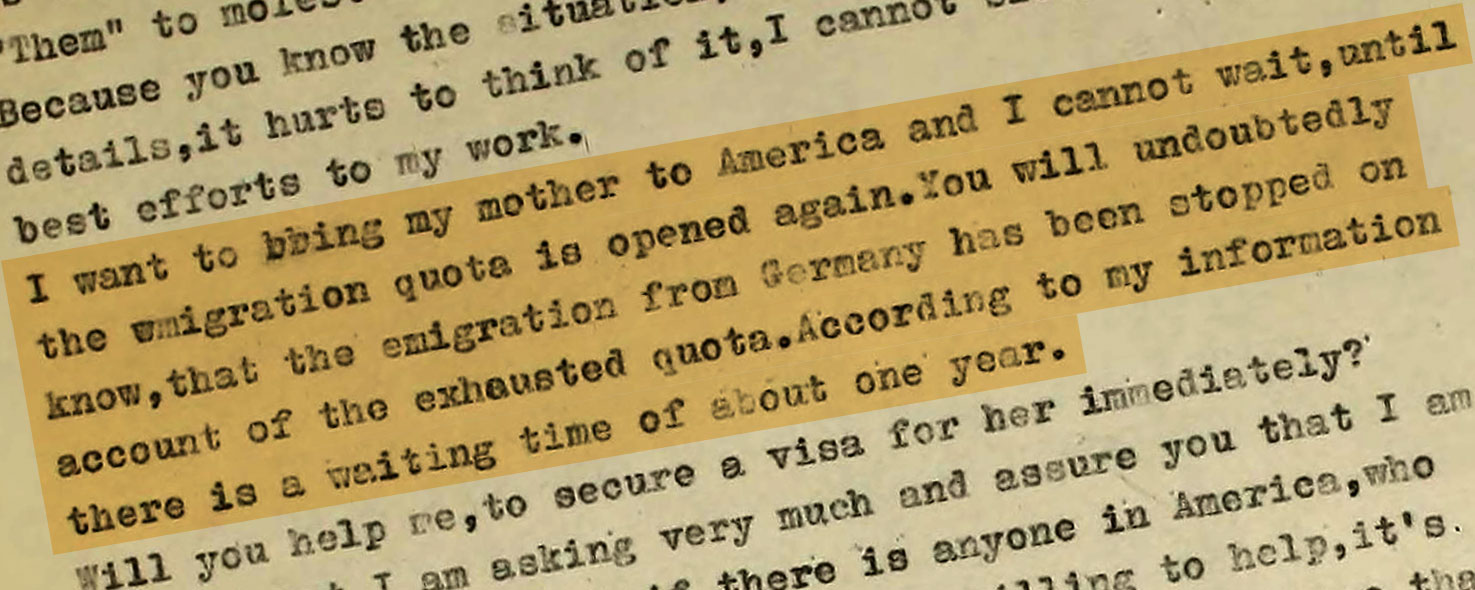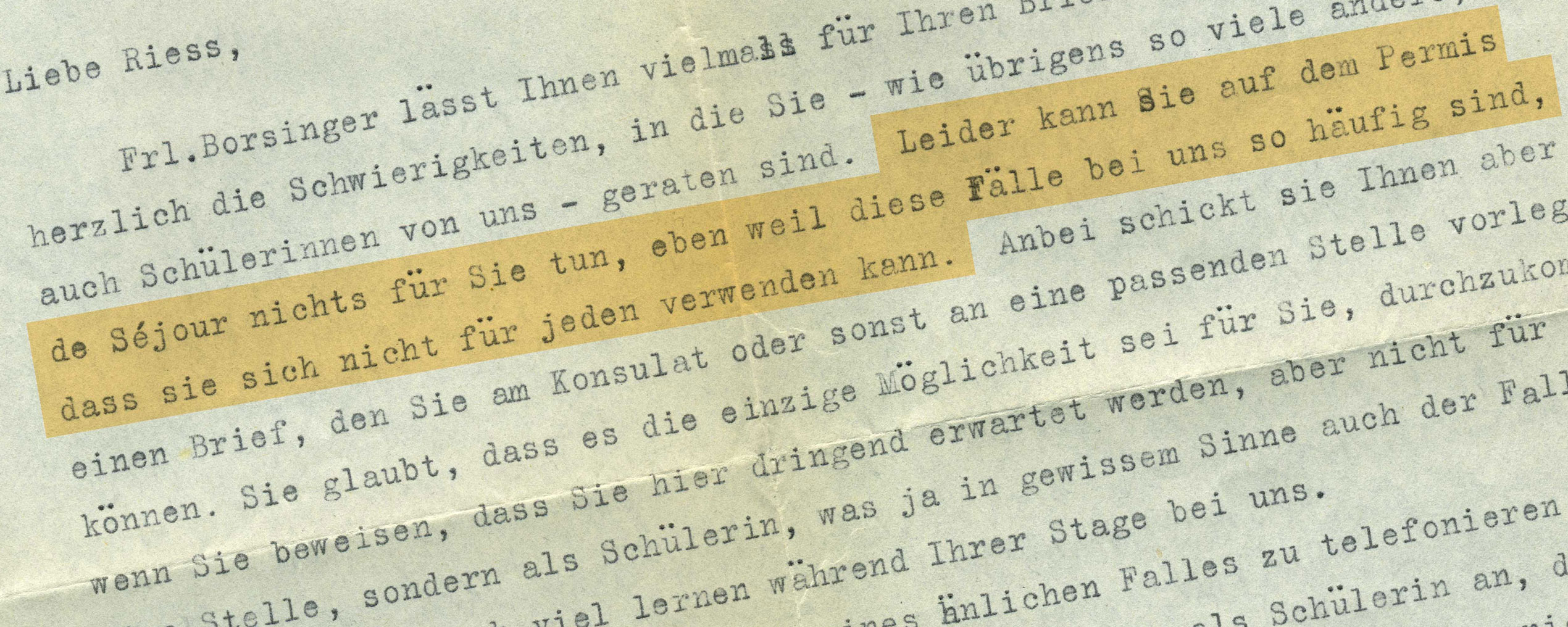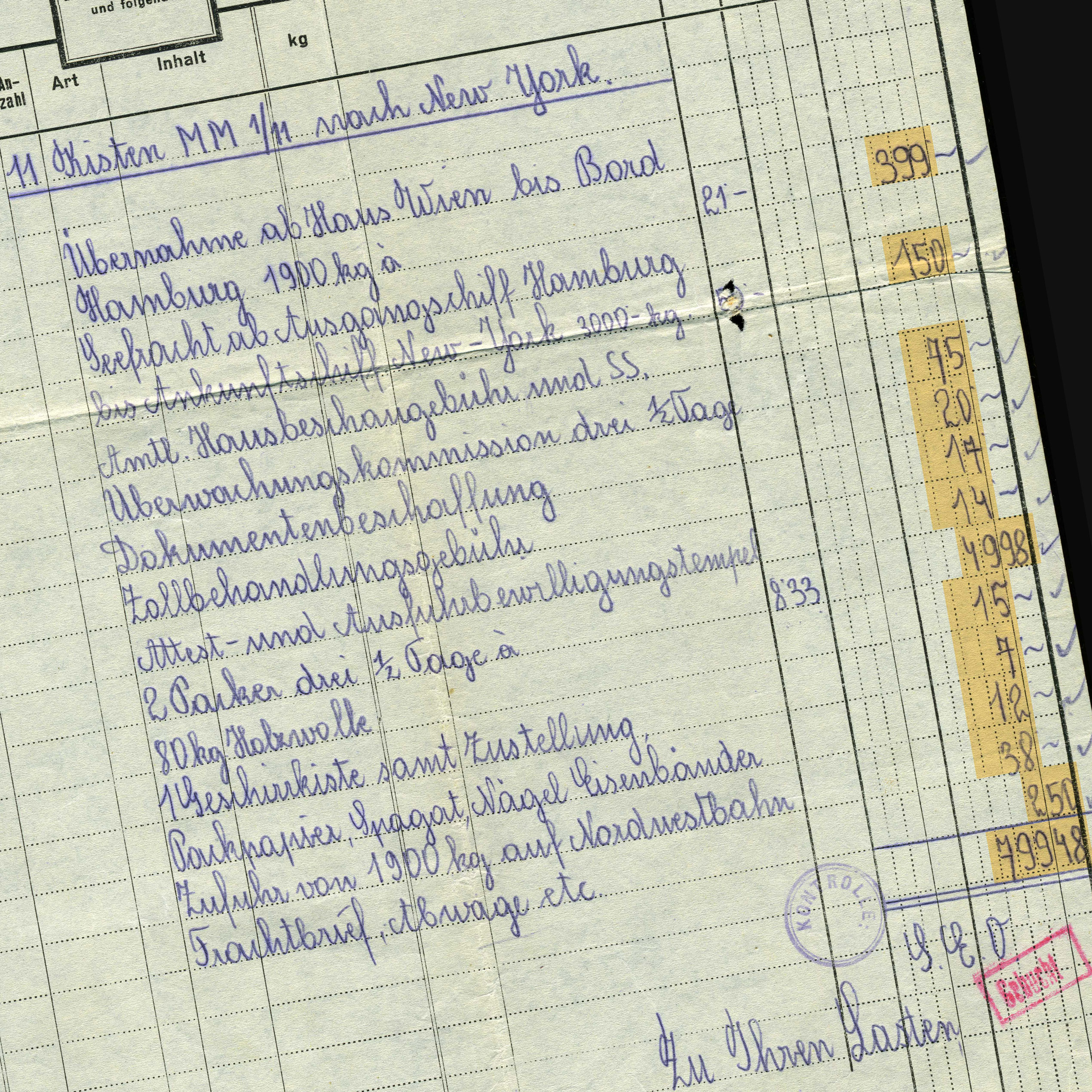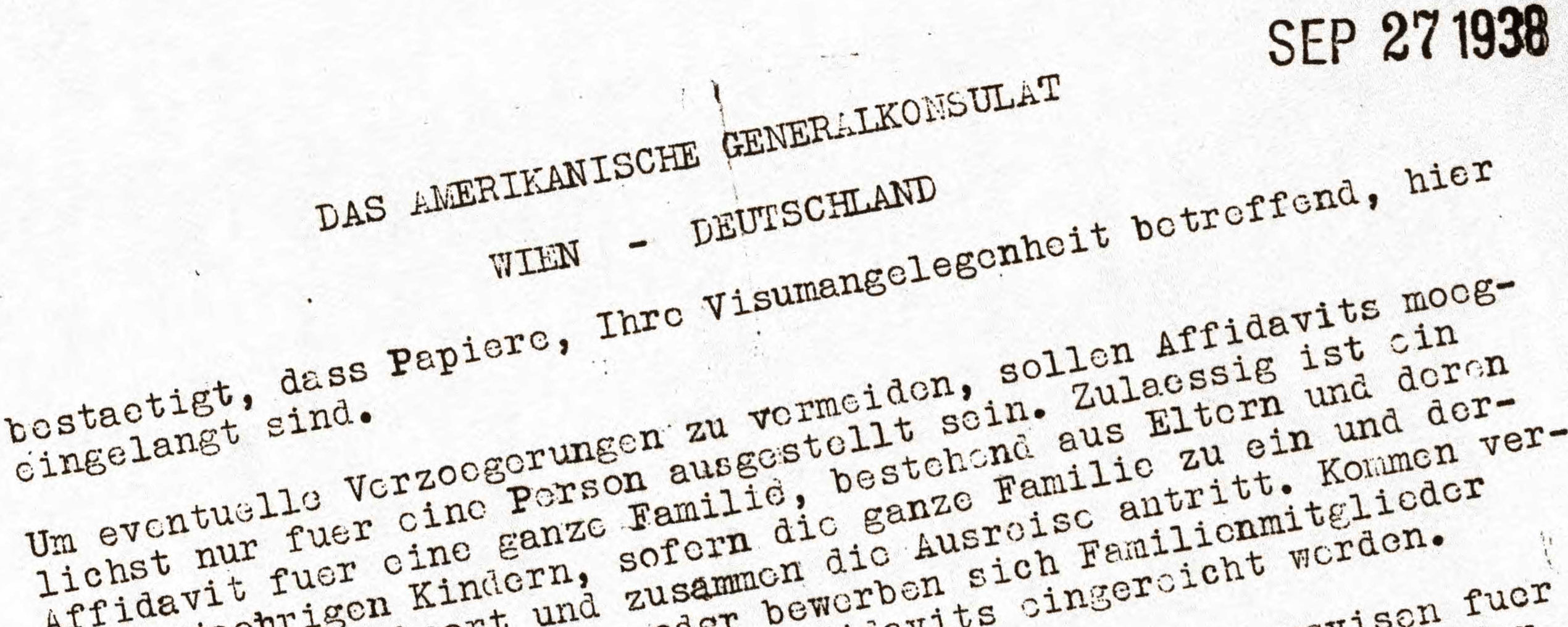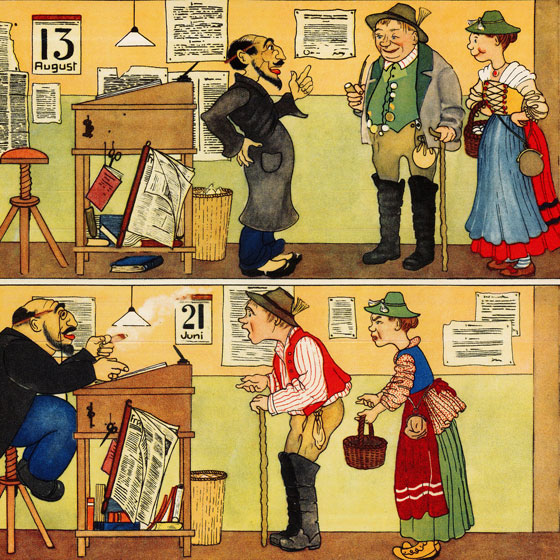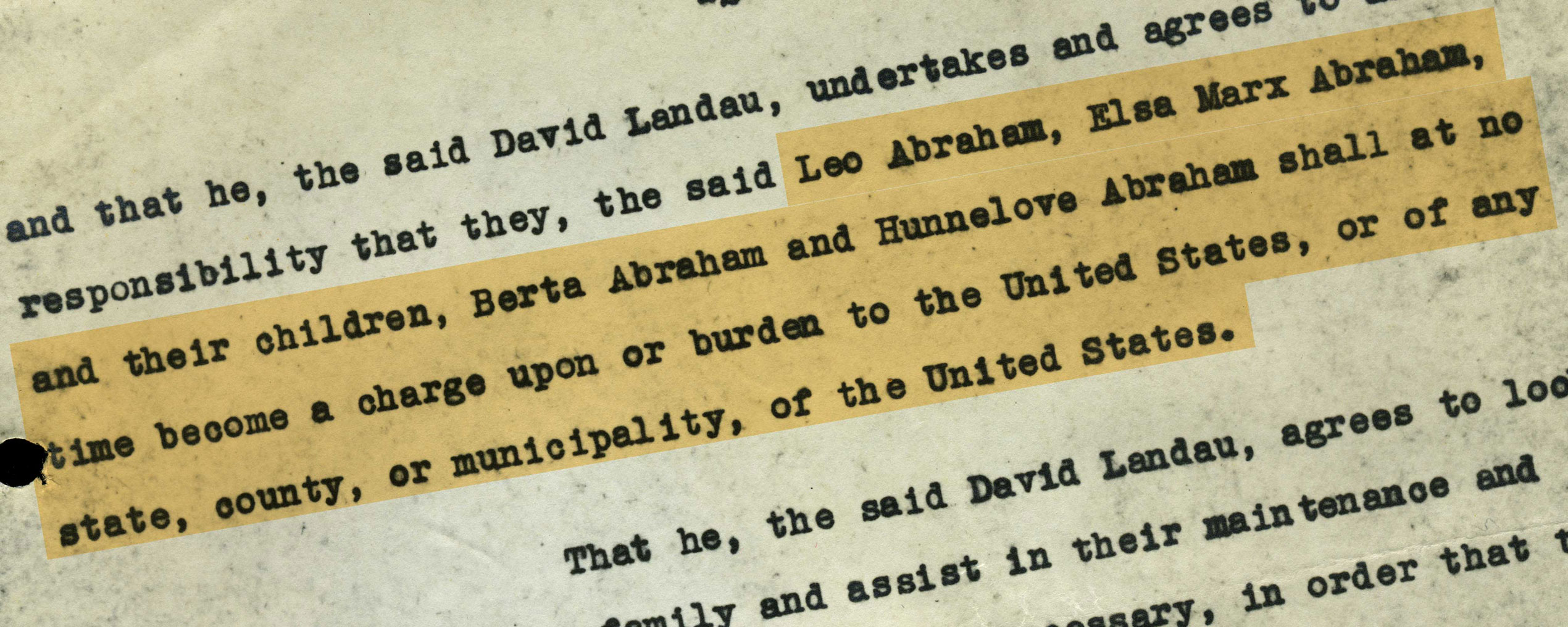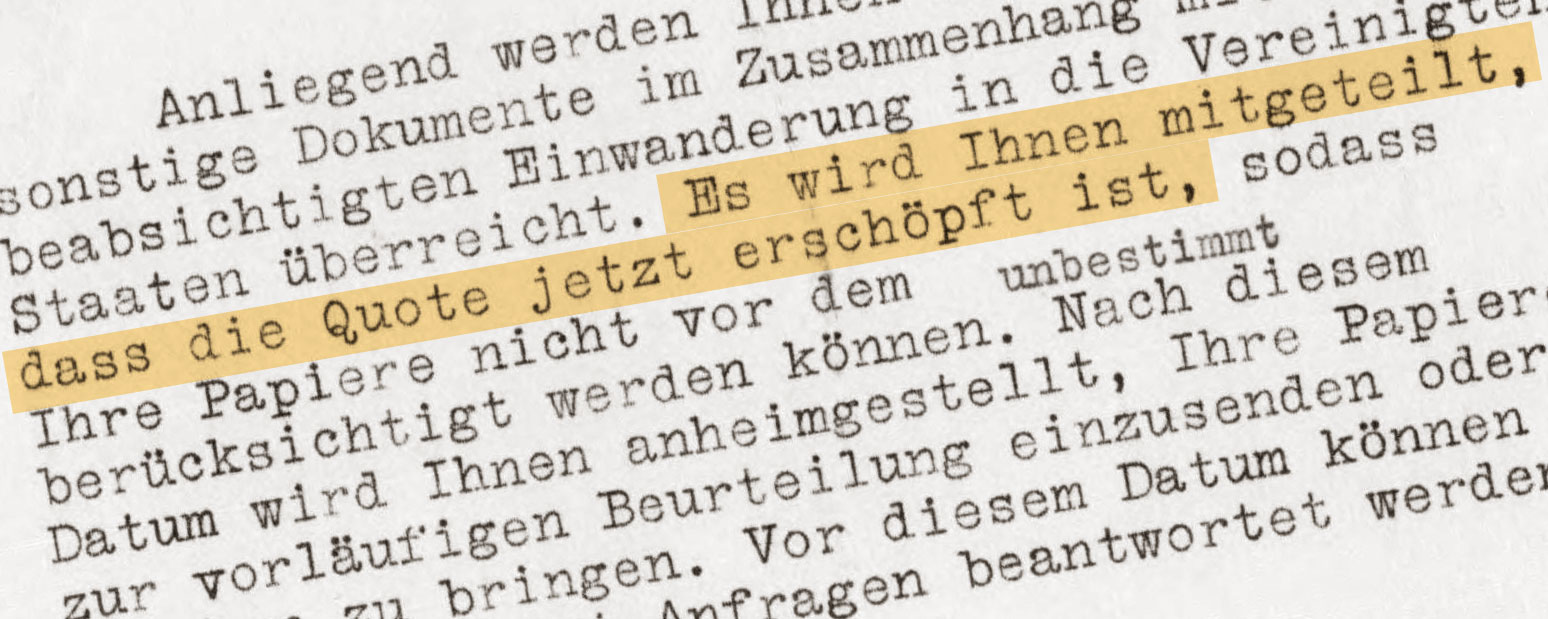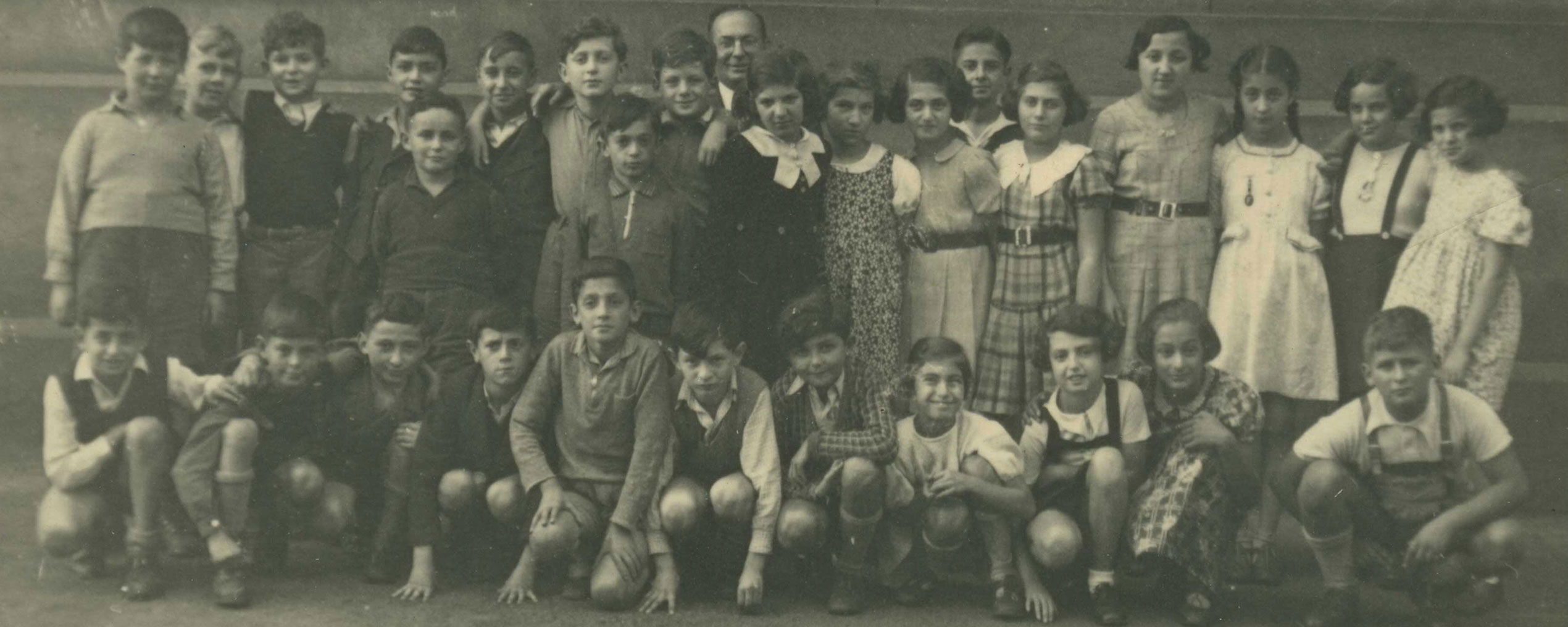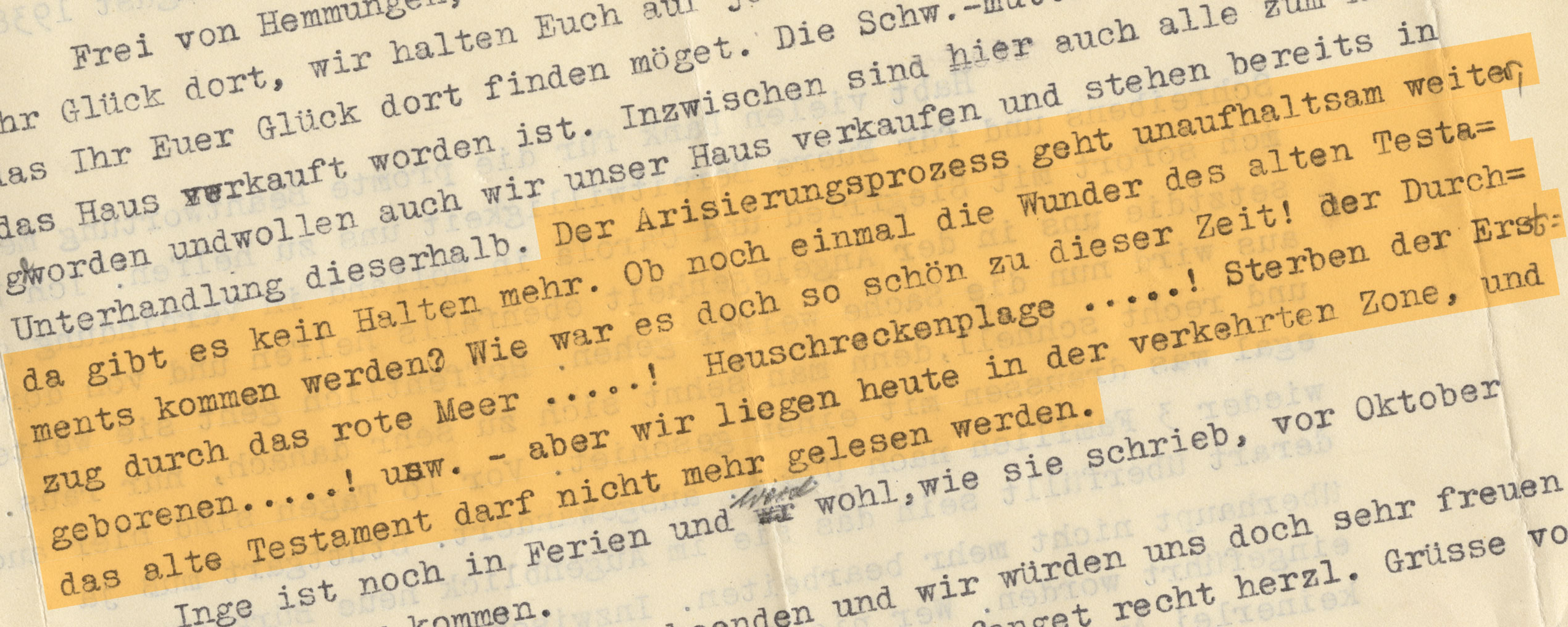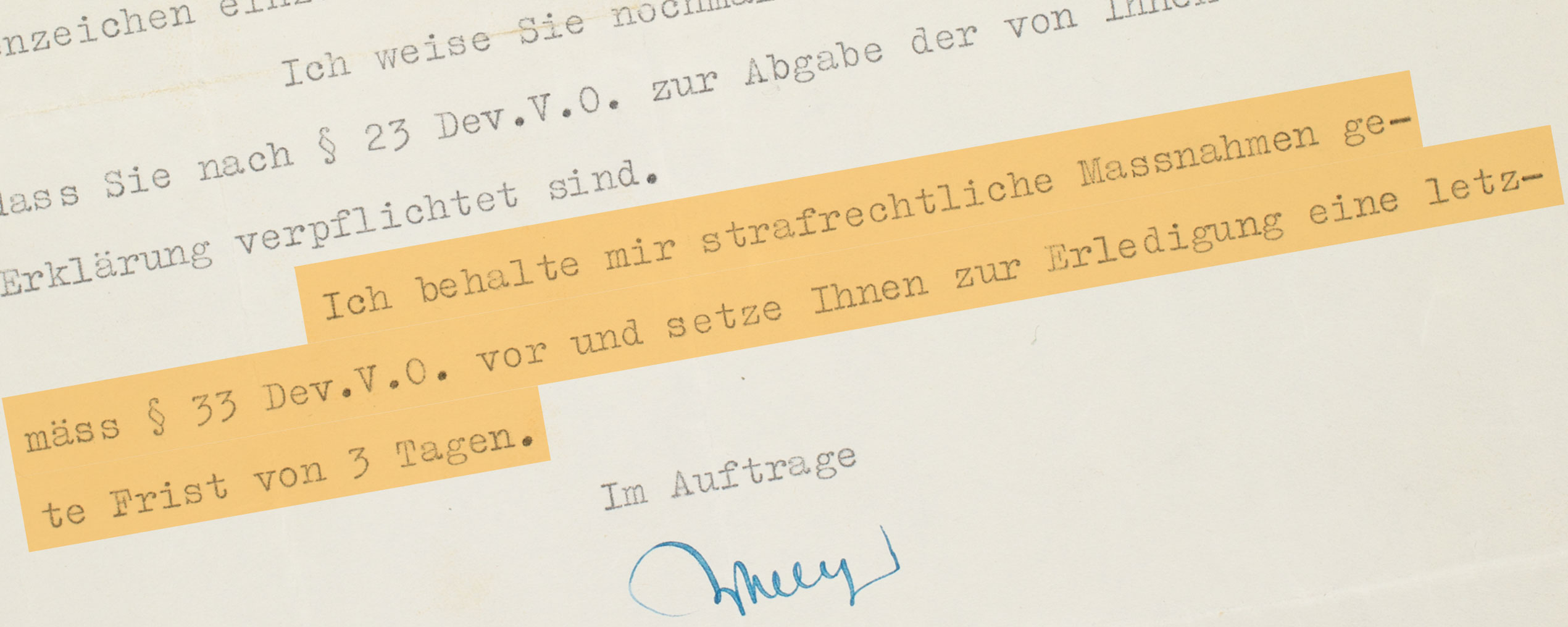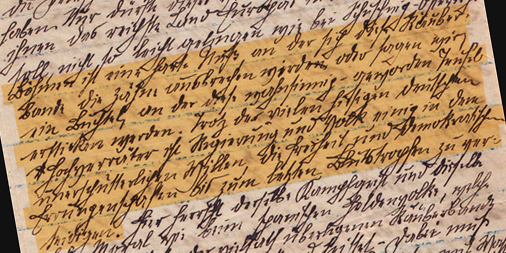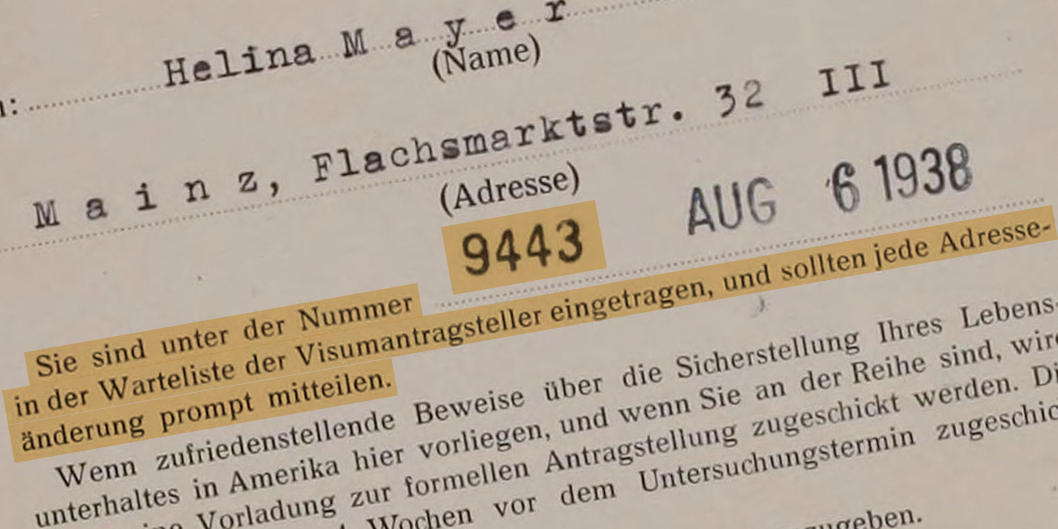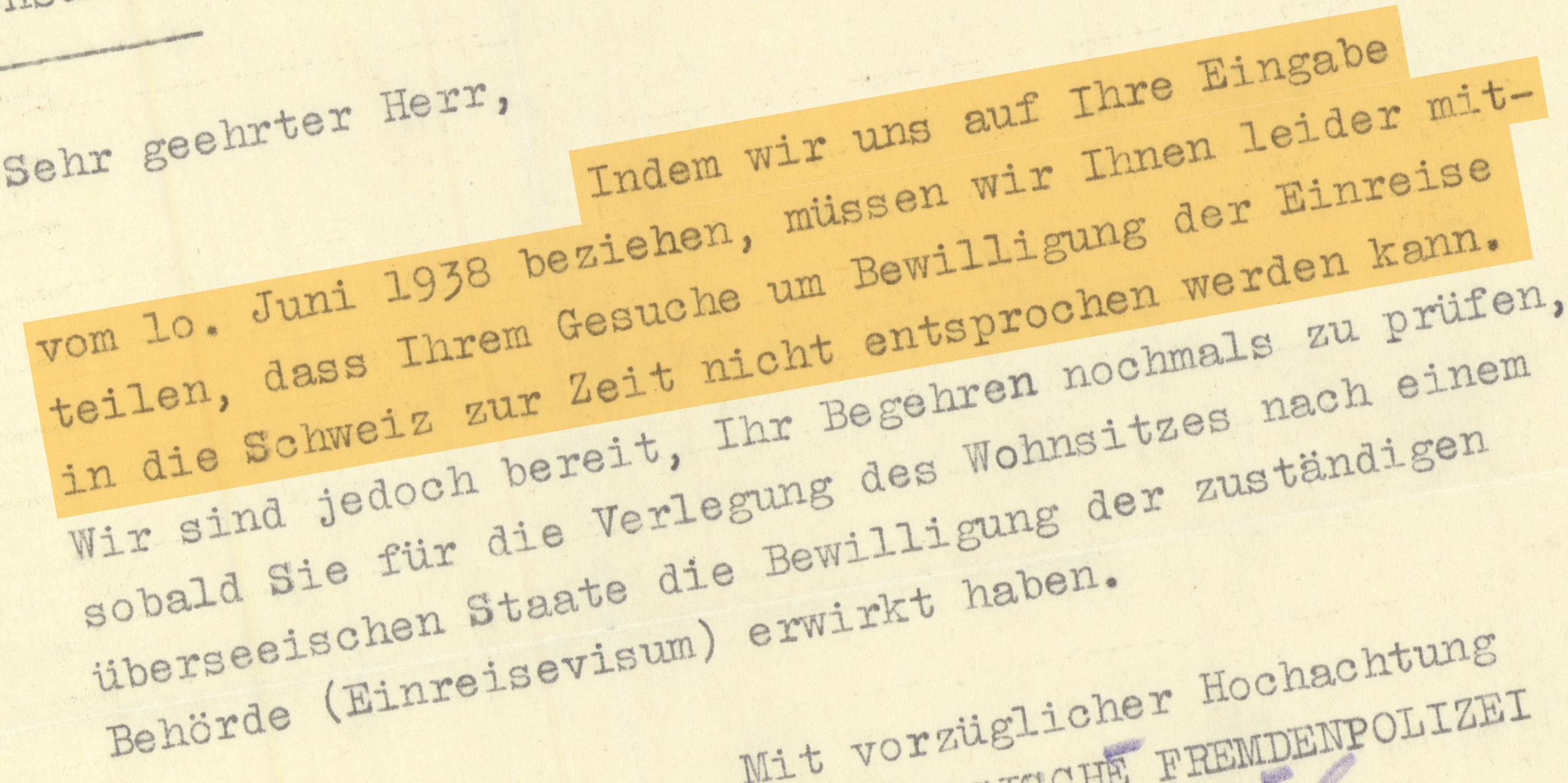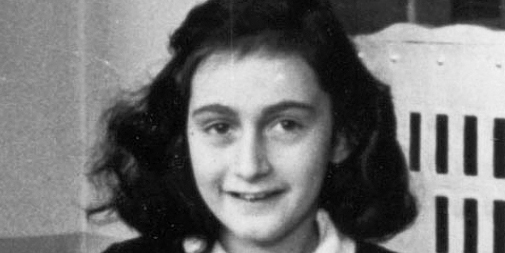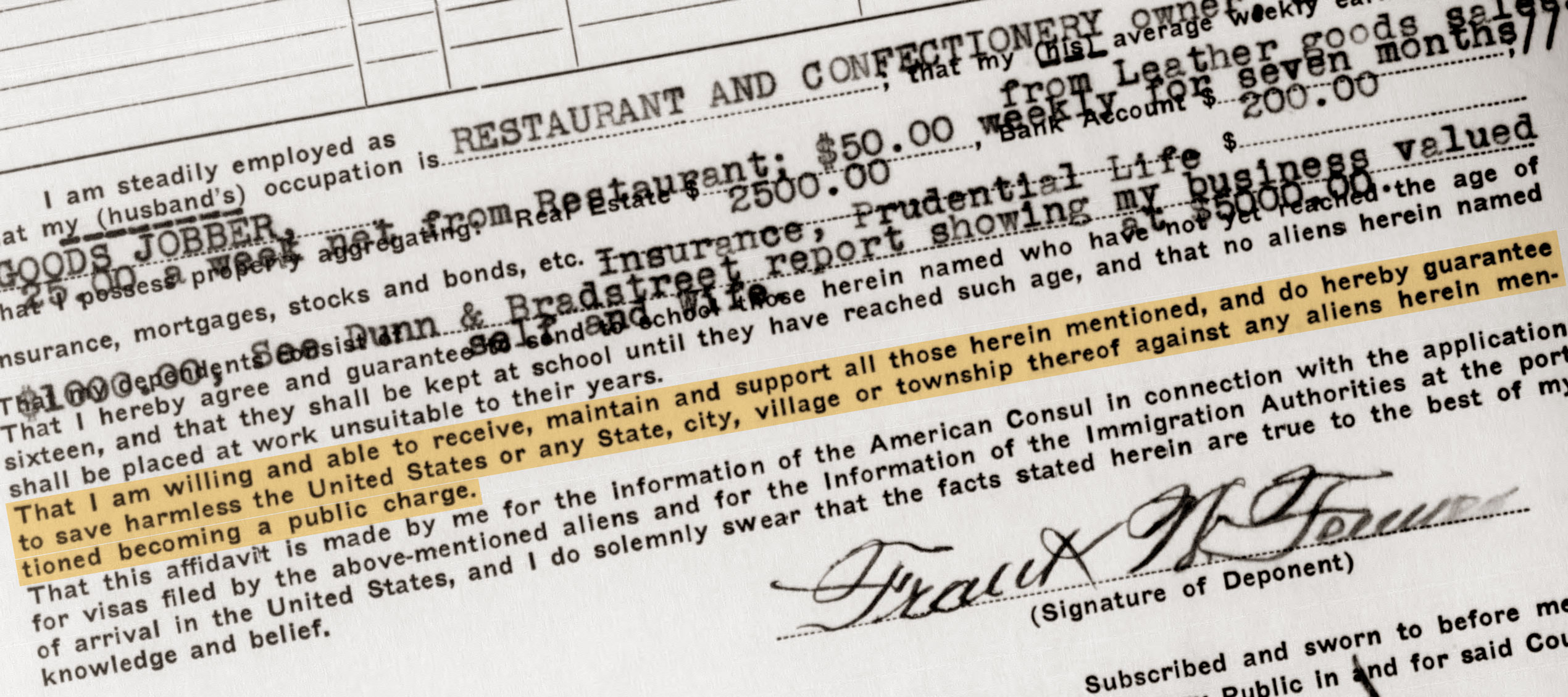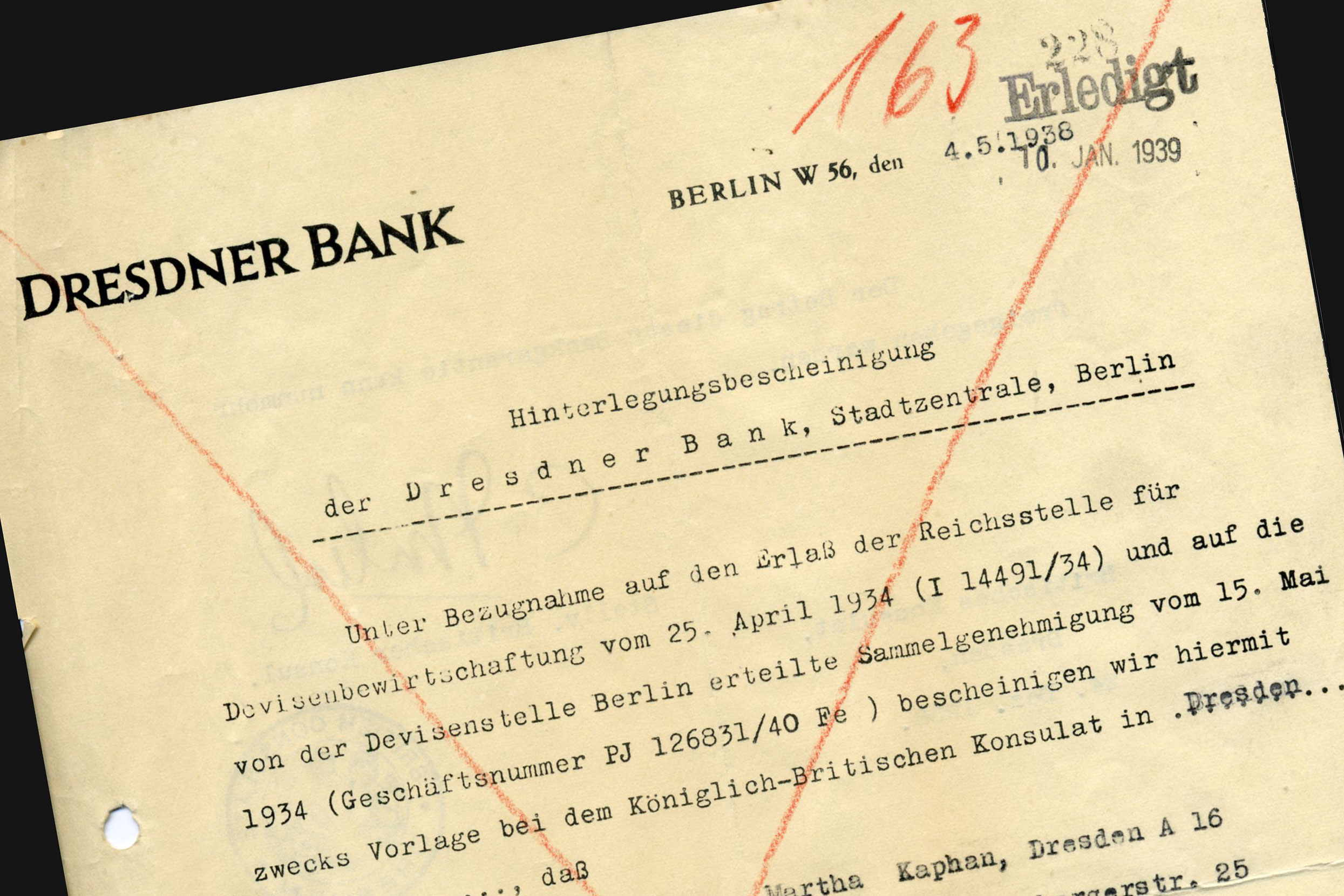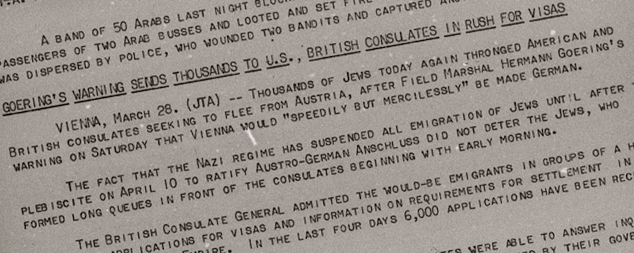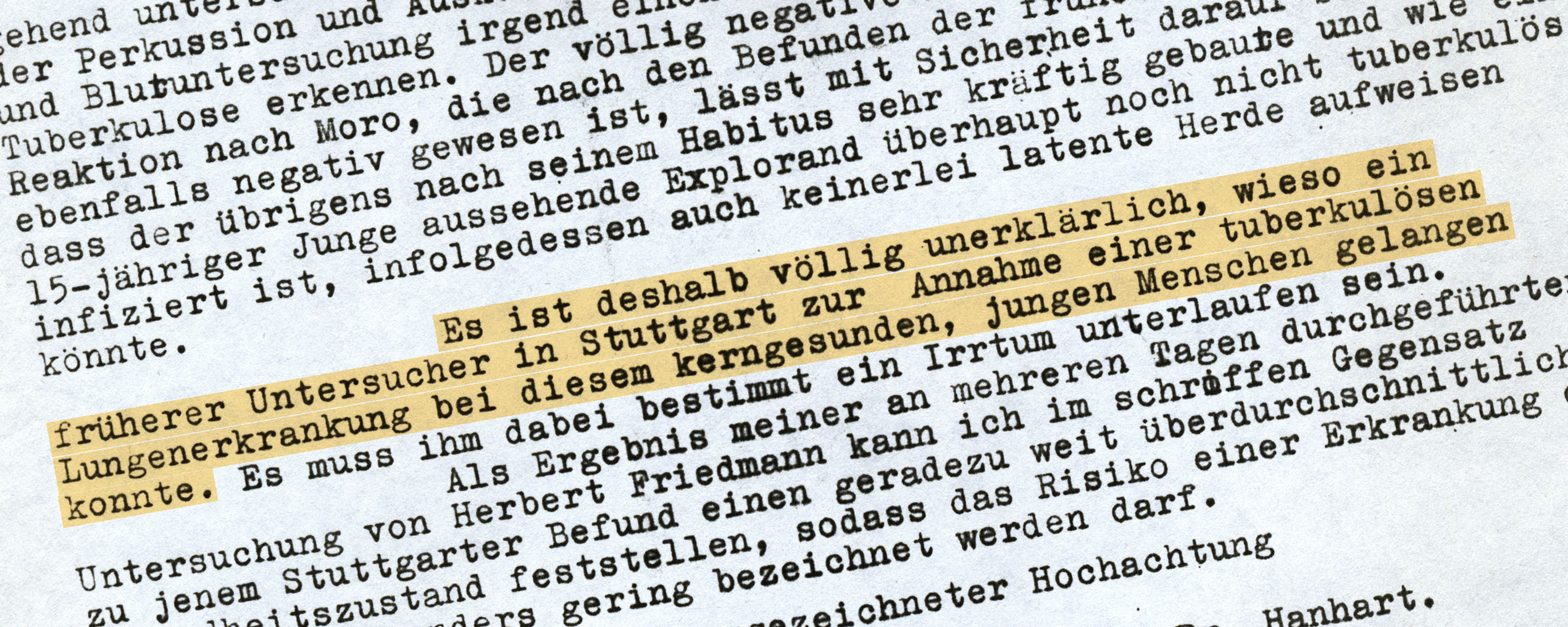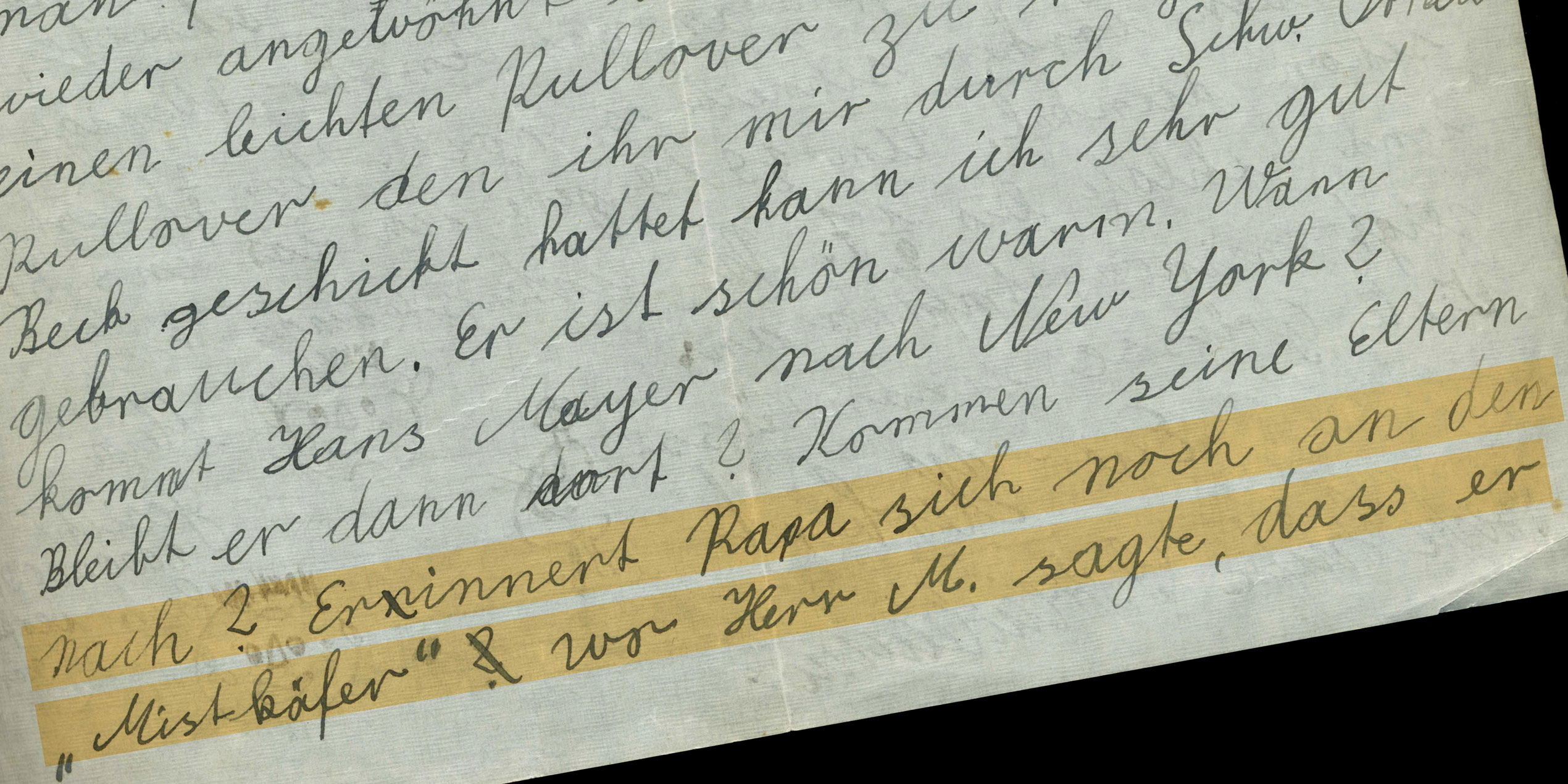No new arrangement for siblings
Argentina tightens immigration requirements
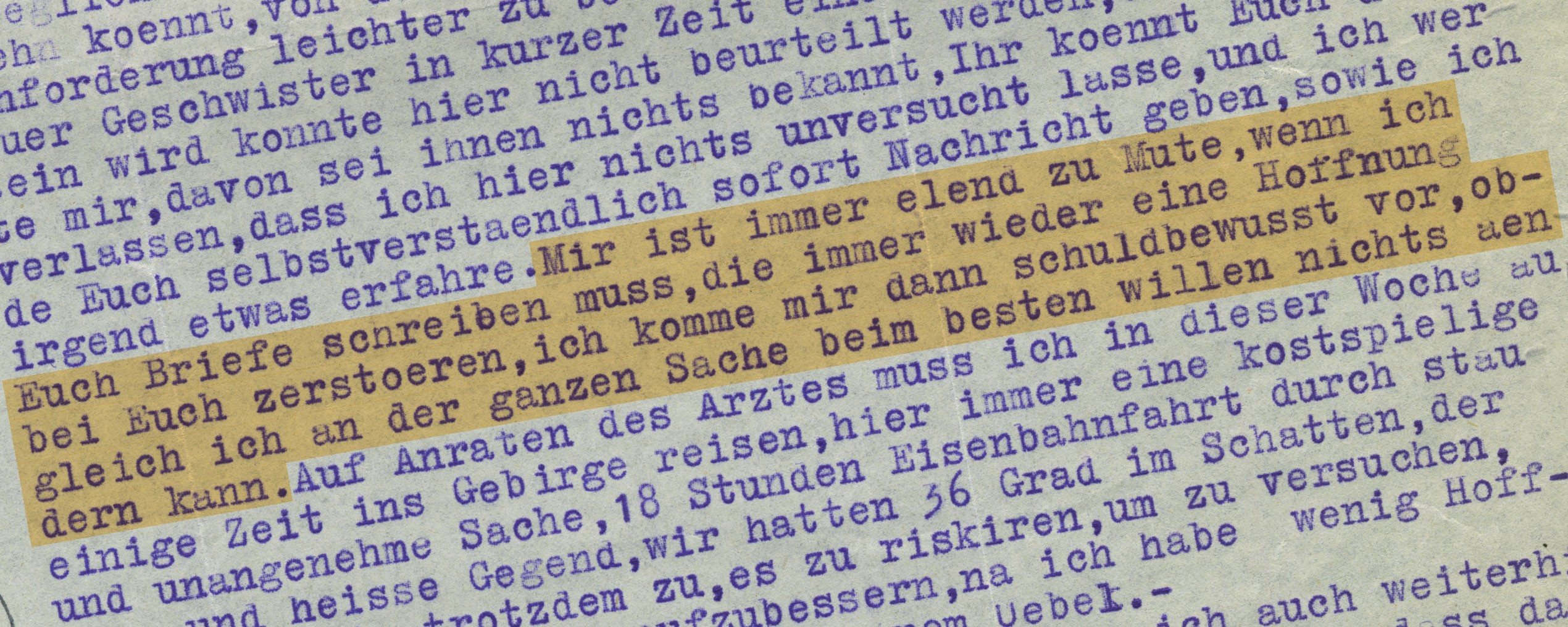
“I always feel miserable when I have to write you letters destroying hopes on your side time and again. It makes me feel guilty, even though I can't do anything about it with the best will in the world.”
Buenos Aires/Berlin
Due to the perception prevalent since the middle of the 19th century that immigrants, preferably from Europe, were needed to populate the vast expanses of Argentina, the country’s immigration policy was comparatively generous. But already following WWI, the country’s needs for manpower were perceived as saturated, and by the 20s, administrative barriers to immigration were put up. With victims of Nazi persecution seeking refuge, immigration policy was tightened even more. Nevertheless, many thousands of German Jews as well as political adversaries of the regime found refuge in Argentina. Among them was Max Busse. His sister, Anna Nachtlicht, had heard about plans of the Argentine government to ease immigration and make it possible to request permits for siblings. Max immediately went to make inquiries, but the results were sobering. In this December 26th letter, he is forced to tell her that no such plans seem to exist. Relatives in France had offered the Nachtlichts to stay with them to wait for their visas for a third country. Perhaps, Max suggests, it would be easier to apply from there.
SOURCE
Institution:
Leo Baeck Institute – New York | Berlin 
Collection:
Nachtlicht Family Collection, AR 25031 
Original:
Box 1, folder 7








































